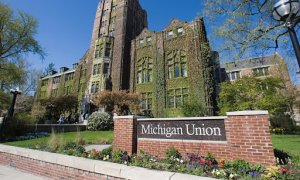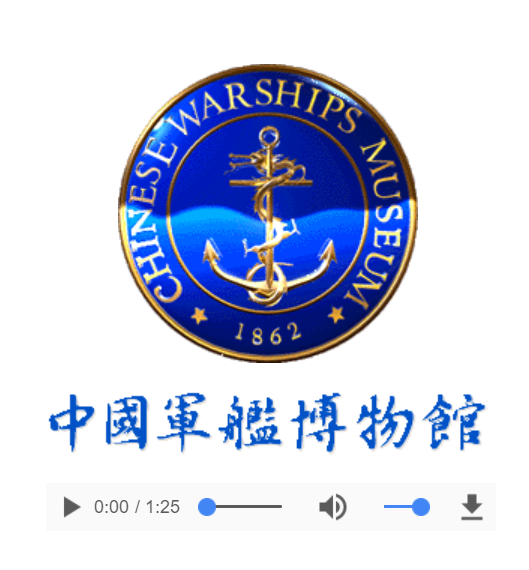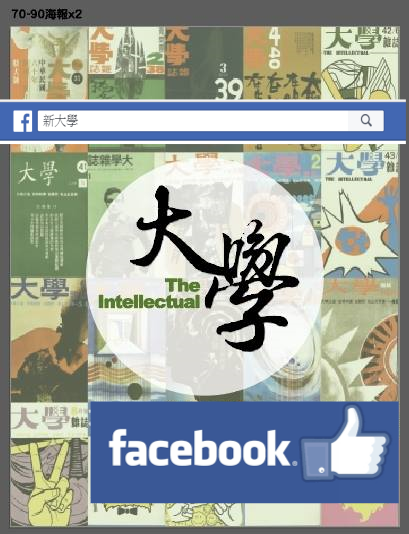♦ 本文轉載自 Science。若有侵害著作權,請速告知,我們將盡速移除 ♦
2021/10/28
Chinese faculty describe heightened anxiety, fewer collaborations, loss of trust
DAVIDE BONAZZI/SALZMAN ART
Two complementary surveys document what had previously been anecdotal evidence about how the U.S. government’s 3-year-old China Initiative to curb China’s influence on academic research has affected scientists of Chinese heritage.
Among the findings:
- At top-tier research institutions, those scientists are four times more likely to fear government surveillance than their non-Chinese colleagues and to have canceled research projects with their Chinese counterparts for fear those activities could make them a target.
- At one major U.S. university, the University of Michigan, 42% of Chinese faculty worry their institution won’t defend them against what they believe are racially motivated government investigations, and only 12% think UM still encourages collaborations with China.
- The rising violence against Asians living in the United States and the current political climate may result in a reverse brain drain in U.S. higher education. At UM, 42% of Chinese faculty said those factors have made them consider taking a job in another country, and roughly one-third of a national sample of Chinese scientists say their race or country of origin has been an impediment to their success.
“Everybody talks about the impact of the China Initiative on U.S. campuses, but where’s the evidence?” explains pharmaceutical scientist Duxin Sun, president of UM’s Association of Chinese Professors (UM-ACP), which sent out a questionnaire in July to its 369 faculty members. “As scientists, we wanted to see the data.”
The second survey, also conducted in the summer and released today, was sponsored by the Committee of 100 (C-100), a nonprofit group of prominent Chinese Americans that promotes U.S.-Chinese ties and has asked President Joe Biden to end what it labels a “xenophobic crusade [by then-President Donald Trump] that is still in place today.” C-100’s survey is based on responses from nearly 2000 U.S. scientists, nearly half with Chinese heritage, at 83 of the country’s largest research universities.
Both surveys were triggered by concerns about the Department of Justice’s China Initiative, launched in 2018 to address concerns that China is stealing U.S. intellectual property and improperly benefiting from federal research spending. The initiative has led to criminal charges against some two dozen academics, overwhelmingly of Chinese heritage, for allegedly violating rules that require grant applicants to disclose all sources of research support to funding agencies. In addition, investigations by the National Institutes of Health and the National Science Foundation have resulted in scientists being fired and universities returning grant money.
Starkly different responses
The C-100 survey, which included graduate students and postdoctoral researchers as well as faculty members, found the impact of both the China Initiative and rise of anti-Asian sentiment has been much greater on Chinese scientists than on their non-Chinese counterparts. “We anticipated some evidence of [Chinese scientists feeling subject to] racial profiling, but not how stark these differences would be,” says the study’s lead author, education researcher Jenny Lee of the University of Arizona, who studies the geopolitics of global science.
For example, 42% of the 650 Chinese scientists who self-identified in the survey said they “feel racially profiled by the U.S. government” compared with only 9% of 770 non-Chinese scientists. Scientists of Asian but not Chinese heritage fell in between, with 27% reporting they have been unfairly targeted. Some 24% of U.S.-based Chinese scientists report ending collaborations with China in the past 3 years and canceling planned projects. That share is four times larger than the 6% of non-Chinese scientists who reported taking such steps. Among non-Chinese Asian faculty, 14% reported terminating their collaborations with researchers in China.
Lee speculates that the differences are due to the disproportionate impact of the China Initiative on Chinese scientists. “They have felt the brunt of the scrutiny from federal research agencies and the Justice Department,” says Lee, who is Korean American.
Chinese scientists and their non-Chinese colleagues differed significantly in their views of the government’s rationale for the China Initiative, the C-100 survey found. Three in four non-Chinese scientists think the United States “should be tougher on China to prevent theft of intellectual property.” That’s twice the rate among Chinese scientists. The division over whether academic espionage by Chinese scientists poses a serious problem is even larger: Forty-three percent of non-Chinese researchers said it does, compared with 14% of Chinese academics. Consistent with those findings, 69% of Chinese scientists think the U.S. government has exaggerated the problem, versus 36% of non-Chinese scientists.
Fears of a trap
The UM-ACP survey provides a case study of how these issues are playing out at a major research campus, UM. Ann Lin, a public policy professor at UM Ann Arbor who fielded the survey of Chinese faculty members at her school, says the 33% response rate “was a lot higher than I expected” and reflects the keen interest in the topic. (The C-100 survey, which also included graduate students and postdoctoral researchers, had a 7% response rate.)
The UM survey revealed a profound sense among Chinese faculty of feeling like second-class citizens on their campus. Some 71% believe their concerns “are largely invisible” to university administrators, and 89% believe Asian Americans are underrepresented in top-level posts. “I’m grateful to the UM-ACP for identifying faculty concerns about policies, practices, and climate that impact their success at UM and across the country,” says UM Provost Susan Collins, adding that “the strength of the university rests on the excellence of our faculty.”
Twenty-two of the 123 Chinese faculty members who responded said they had been questioned about their research collaborations in China. In 15 cases the interrogators were university officials, in nine cases it was federal law enforcement agents, and in five cases it was a federal research agency. (Some faculty faced scrutiny from more than one source.) Only 20% of the Chinese faculty who were investigated by UM officials said they were informed of their “rights and responsibilities,” compared with 33% of those queried by law enforcement and of those 70% contacted by a funding agency.
Their concerns extend beyond the confines of the Ann Arbor campus. Nearly two-thirds of UM’s Chinese faculty say they “don’t feel safe as a U.S. academic,” citing the China Initiative and attacks on Asians as the two biggest reasons. Third on the list is anti-China rhetoric by U.S. government officials, followed by potential retaliation by the Chinese government “for anything I say or do.”
Fear of being punished for speaking out might have skewed some answers to the survey. “I’ve been doing surveys for 20 years, and I’ve never had anybody ask me—is this [survey] legit?” Lee says. “I think I got 10 of those.”
One faculty member even admitted to fudging some answers: “I have made some changes on all checked items [asking about research collaborations with China], because of the China Initiative,” the researcher wrote in the open-ended comments section of the survey. “Not because I had anything to hide, but because the China Initiative can clearly be used to entrap.”
Lin says some respondents worried that FBI might find a way to use the survey to gather information for future investigations of certain individuals, even though she reassured faculty members the survey was designed by UM-ACP and that their identities would remain anonymous. Still, she says, “I don’t think the response rate would have been nearly so high if it had been an outside group contacting them.”
Lee thinks the surveys suggest the China Initiative has been counterproductive. “If its goal is to help the U.S. compete against China,” she says, “then the results show that it has actually weakened our ability to do cutting-edge science.”
Clarification, 2 November, 11:20 a.m.: This story has been updated to clarify the nature of the investigations of University of Michigan faculty, to add a response from the university’s provost, and to correct the name of the faculty organization at Michigan.

- 10/27: When a Scholar Is Accused of Being a Spy, https://www.chronicle.com/
article/when-a-scholar-is- accused-of-being-a-spy - 10:28: Chinese Scientists Feel a Chill Under U.S. Investigation of Higher Ed’s China Ties, a New Survey Shows, https://www.chronicle.com/
article/chinese-scientists- feel-a-chill-under-u-s- investigation-of-higher-eds- china-ties-a-new-survey-shows
Powerful one-two punch by Karin Fischer of Chronicle Higher Ed
(文章提供:白先慎)
♦ 專文屬作者個人意見,文責歸屬作者,本報提供意見交流平台,不代









